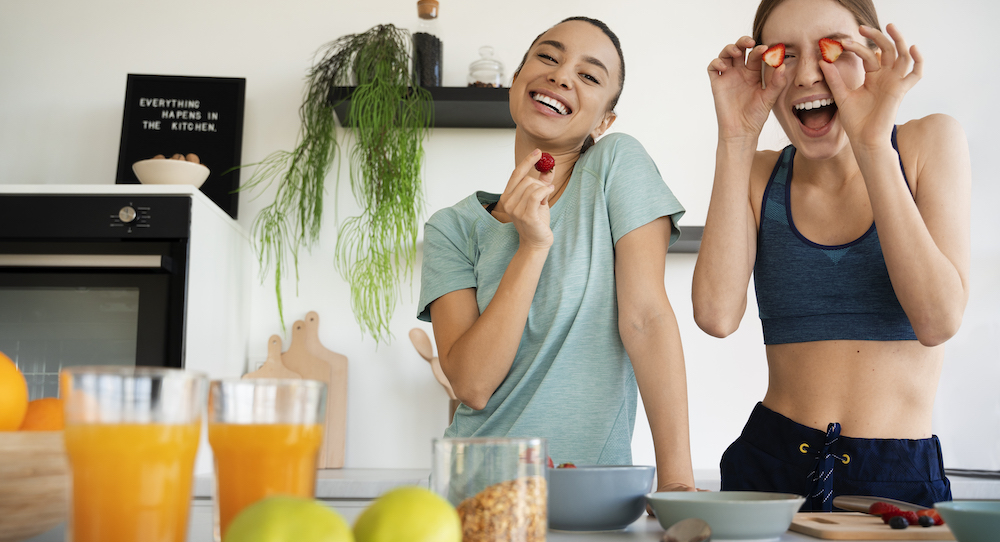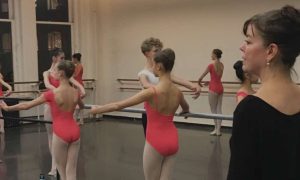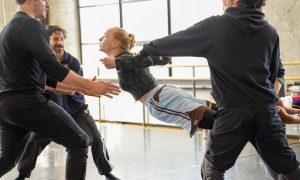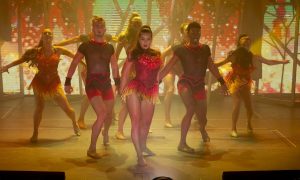Professional dancers know the power of a good nutrition plan for a run of performances to boost performance while also reducing muscle soreness and mental fatigue. Dance students can take a page out of their playbooks to make sure they’re dancing their best for recitals. As a former professional dancer myself, I wish I knew then what I know now about performance nutrition.
One simple thing to change your whole day:
It’s crucial to come off an overnight fast with some energy intake. We call it breaking the “fast” for a reason. Even when sleeping, your body has used energy and you wake in an energy deficit. Choosing to extend this fasting state while going about your day has consequences including reduced mental focus, lower energy, poorer athletic performance and a bad mood. Breakfast means you’ll feel and dance better for the next few hours with the added benefit of making the later part of your day easier because you won’t be in such a huge energy deficit all day. Often when dancers restrict eating earlier in their day, they tend to be extremely hungry later. Even if you’re not hungry or in a rush, at the very least grab a banana and/or a granola bar. Eating breakfast, especially with whole grains or carbs, has been shown to help with healthy weight management. So don’t fall into the trap of thinking that skipping breakfast is going to result in quick weight loss. It won’t, and it will leave you feeling depleted.
Morning energy ideas:
- Carbohydrates such as rolled or steel cut oats, whole grains like wheat, spelt, rye and buckwheat.
- Fruit mixed with a protein like nuts, seeds, yogurt, veggie sausages or an egg. Veggie sausages tend to have lower saturated fat than meat sausages and can be made with healthier ingredients like quinoa, beans and soy protein.
- Look for packaged breakfast bar options with added sugars less than 10-15 grams. Naturally occurring sugars are fine when bars are made with dates or dried fruit.
- Frozen whole grain waffles made with flax seeds and/or nuts. There are also some good recipes for making your own waffles or nutrient-dense pancakes which you can freeze and pop in the toaster for busy mornings.
Pack it with you; you’ll thank yourself later:
Don’t get grumpy two hours into dress rehearsal. Plan ahead. Don’t rely on grabbing fast food or something from a vending machine to be your fuel for the most important performances of your year. The week before recitals, go to the grocery store and strategically pick out easy, quick snacks that are portable in your bag. Bring 2-3 of them with you.
- Plant-based protein bars (I prefer pea, soy, hemp proteins to whey protein)
- Low to moderate sugar granola or oat bars (less than 15g added sugars)
- Peanut butter and jelly sandwich (sun butter for those with allergies)
- All fruits are good snacks.
- Yogurt or yogurt squeeze pouches (I like the Silk and Forager’s brands; keep them cool.)
- Packaged energy rolls like the Gluten Free Bites brand
- Packaged or homemade dried chickpeas and edamame. They come in fun flavors and can be eaten by themselves or added to a salad.
Of course you’re busy, just take 10 minutes to set up your whole day:
Invest in a good, short wide-mouth thermos to keep foods at a safe temperature and make packing your own healthy foods a breeze.
- Chickpea or lentil flour pastas. They cook in less than 8 minutes on the stovetop. Add a light red sauce or pesto and put in a short wide-mouth thermos.
- Cold yogurt, berries and hemp hearts or other seeds
- Hot beans and rice (throw some carrots in while cooking for added vitamin A)
- Room temperature buckwheat noodles tossed with a store-bought Thai or Japanese dressing.
Don’t buy the whole vitamin shop. Here are key vitamins and minerals to get:
- Vitamin D3 (for immune function and muscle strength)
- B vitamins like B12 and B6 (for energy)
- Iron (for immune function and reduced fatigue)
- Vitamin C (immune function, and wound repair for those pointe shoe blisters)
- Both iron and vitamin C are better obtained through food to prevent gastrointestinal discomfort, but supplements can be used if needed. Iron-rich foods are beans, leafy greens like spinach and kale, dried fruit like apricots and raisins, and red meats (but current health recommendations are to limit red meat, so enjoy beans and greens for dinner). Pair with fruit or veggies like sweet peppers for added vitamin C which boost iron absorption. You only need 100 mg of vitamin C (not those 1000 mg packs).
It’s important to take good care of your body during recital week. This is not the week to try to lose weight. There’s no way that restricting calories this week will result in any noticeable difference on stage; it will only leave you feeling exhausted and mentally drained. Fuel your body well, and you’ll notice the difference on stage. Remember that the first two signs of dehydration are fatigue and poor balance, so bring your big water bottle with you and fill it up at least 3 times a day (or more!).
Good luck and have fun!
By Emily C. Harrison MS, RDN, LDN of Nutrition for Great Performances.
Emily Cook Harrison MS, RD, LD
Emily is a registered dietitian and holds both a bachelor’s and master’s degree in nutrition from Georgia State University, USA. Her master’s thesis research was on elite level ballet dancers and nutrition and she has experience providing nutrition services for weight management, sports nutrition, disordered eating, disease prevention, and food allergies. Emily was a professional dancer for eleven years with the Atlanta Ballet and several other companies. She is a dance educator and the mother of two young children. She now runs the Centre for Dance Nutrition and Healthy Lifestyles. She can be reached at emily@dancernutrition.com
www.dancernutrition.com
















